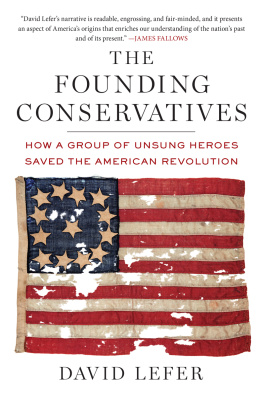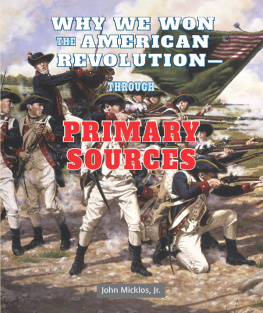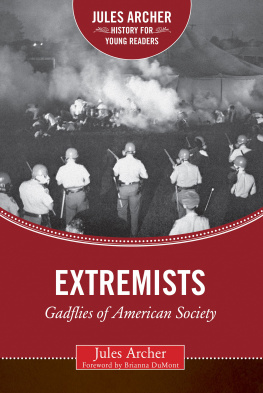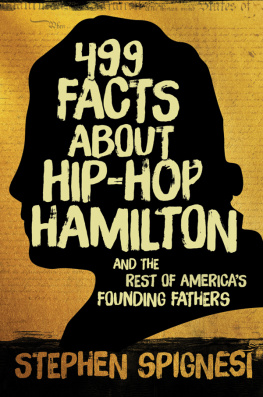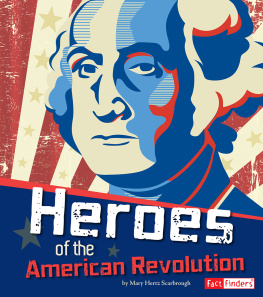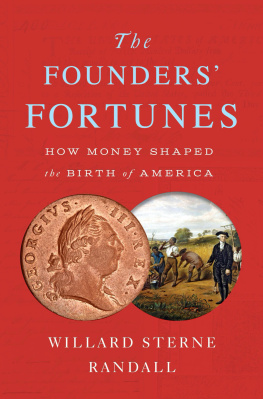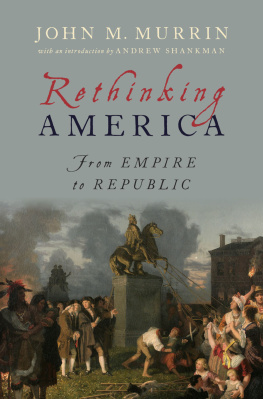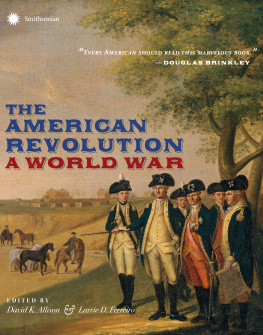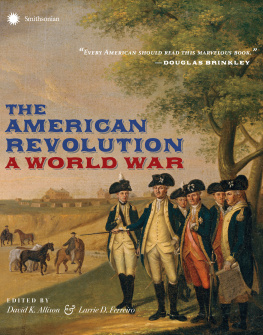David Lefer - The Founding Conservatives: How a Group of Unsung Heroes Saved the American Revolution
Here you can read online David Lefer - The Founding Conservatives: How a Group of Unsung Heroes Saved the American Revolution full text of the book (entire story) in english for free. Download pdf and epub, get meaning, cover and reviews about this ebook. year: 2013, publisher: Penguin Publishing Group, genre: History. Description of the work, (preface) as well as reviews are available. Best literature library LitArk.com created for fans of good reading and offers a wide selection of genres:
Romance novel
Science fiction
Adventure
Detective
Science
History
Home and family
Prose
Art
Politics
Computer
Non-fiction
Religion
Business
Children
Humor
Choose a favorite category and find really read worthwhile books. Enjoy immersion in the world of imagination, feel the emotions of the characters or learn something new for yourself, make an fascinating discovery.
- Book:The Founding Conservatives: How a Group of Unsung Heroes Saved the American Revolution
- Author:
- Publisher:Penguin Publishing Group
- Genre:
- Year:2013
- Rating:4 / 5
- Favourites:Add to favourites
- Your mark:
The Founding Conservatives: How a Group of Unsung Heroes Saved the American Revolution: summary, description and annotation
We offer to read an annotation, description, summary or preface (depends on what the author of the book "The Founding Conservatives: How a Group of Unsung Heroes Saved the American Revolution" wrote himself). If you haven't found the necessary information about the book — write in the comments, we will try to find it.
John Dickinson, 1773
A nation at war and widespread mistrust of the military. A financial crash and an endless economic crisis. A Congress so divided it barely functioned. Bitter partisan disputes over everything from taxation and the distribution of wealth to the role of banks and corporations in society. Welcome to the world of the Founding Fathers.
According to most narratives of the American Revolution, the founders were united in their quest for independence and steadfast in their efforts to create a stable, effective government. But the birth of our republic was far more complicated than many realize. The Revolution was nearly derailed by extremists who wanted to do too much, too quickly and who refused to rest until they had remade American society. If not for a small circle of conservatives who kept radicalism in check and promoted capitalism, a strong military, and the preservation of tradition, our country would be vastly different today.
In the first book to chronicle the critical role these men played in securing our freedom, David Lefer provides an insightful and gripping account of the birth of modern American conservatism and its impact on the earliest days of our nation.
Among these founding conservatives were men like John Dickinson, who joined George Washingtons troops in a battle against the British on July 4, 1776, and that same week drafted the Articles of Confederation; James Wilson, a staunch free-market capitalist who defended his home against a mob of radicals demanding price controls and in the process averted a bloody American equivalent to Bastille Day; Silas Deane, who mixed patriotism with profit seeking while petitioning France to aid America; and Robert Morris, who financed the American Revolution and founded the first bank and the first modern multinational corporation in the United States.
Drawing on years of archival research, Lefer shows how these and other determined founders championed American freedom while staying faithful to their ideals. In the process, they not only helped defeat the British but also laid the groundwork for American capitalism to thrive.
The Founding Conservatives is an intellectual adventure story, full of gunfights and big ideas. It is also an extraordinary reminder of the punishing battles our predecessors fought to create and maintain the free and prosperous nation we know today.
David Lefer: author's other books
Who wrote The Founding Conservatives: How a Group of Unsung Heroes Saved the American Revolution? Find out the surname, the name of the author of the book and a list of all author's works by series.

